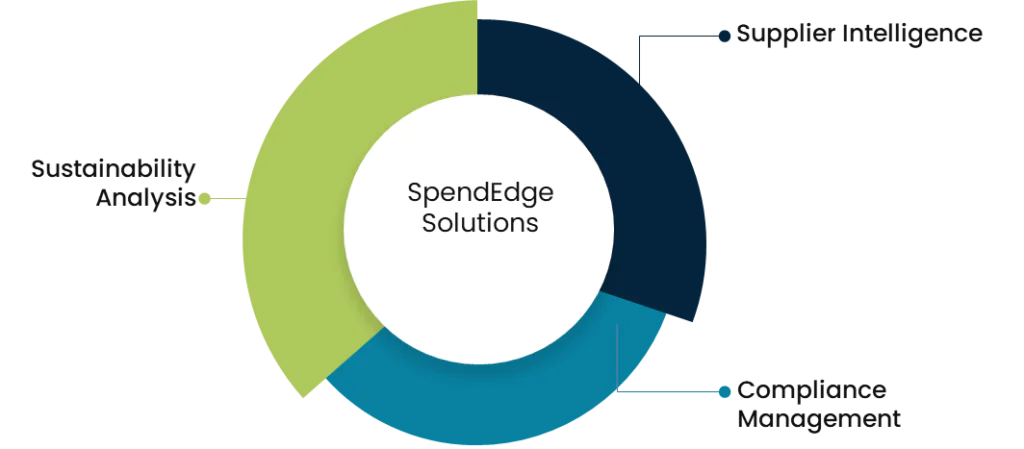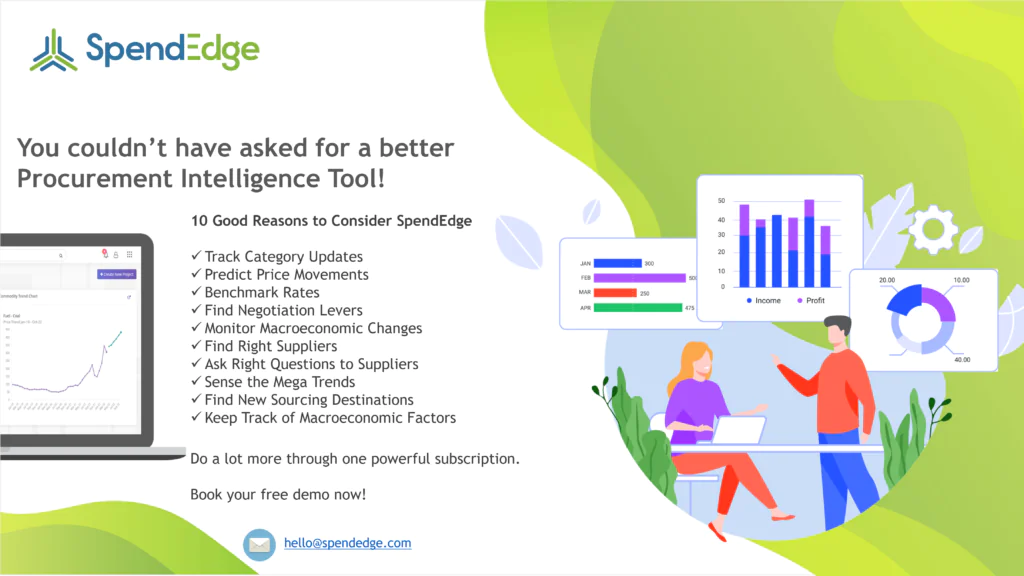By: George Mathew
In today’s world, the imperative to combat climate change has never been more pressing. Central to this effort is the urgent need for businesses to undertake proactive measures to reduce their carbon emissions. Among the crucial avenues for achieving decarbonization, procurement emerges as a pivotal player. Defined as the process of acquiring goods and services essential for business operations, procurement holds significant sway over a company’s carbon footprint. With mounting recognition of the climate crisis, the role of procurement in driving decarbonization has gained paramount importance. This guide aims to delve into the pivotal role of procurement in decarbonization efforts, examining its potential to influence emissions reduction and foster sustainability across supply chains. Through exploration of challenges, opportunities, and best practices, this guide seeks to illuminate the path toward sustainable procurement practices in the face of environmental imperatives.
Scope: Procurement’s Role in Decarbonization
Understanding the role of procurement in decarbonization hinges upon grasping the various types of emissions that contribute to a company’s carbon footprint. These emissions are typically categorized into three scopes:
- Scope 1: Direct emissions stemming from the company’s operations, including emissions from owned vehicles and manufacturing facilities.
- Scope 2: Indirect emissions arising from purchased electricity, steam, or heat utilized by the company.
- Scope 3: Indirect emissions linked to the company’s activities but originating from sources not directly owned or controlled by the company, such as emissions from raw material production or transportation.
Procurement wields influence across all three scopes of emissions.
• Scope 1: procurement can drive emissions reduction by opting for suppliers with lower emissions or transitioning to vehicles with lower carbon footprints.
• Scope 2: procurement can facilitate the procurement of renewable energy or select suppliers offering low-carbon electricity.
• Scope 3: procurement can collaborate with suppliers to curtail emissions within their supply chains, advocate for sustainable practices, and evaluate suppliers based on their sustainability performance.
Benefits of Sustainable Procurement
Sustainable procurement, which involves purchasing goods and services in a manner that minimizes negative environmental, social, and economic impacts, presents numerous opportunities and benefits for businesses. Below are the key advantages:
Cost Savings and Enhanced Efficiency:
Embracing sustainable procurement practices enables businesses to economize and operate more efficiently. By opting for suppliers employing sustainable production methods, companies can reduce energy and water consumption, cut down their carbon footprint, and mitigate waste. These measures not only lead to long-term cost savings but also streamline supply chain operations. Furthermore, sustainable procurement aids in averting penalties associated with non-compliance with government-imposed ESG (Environmental, Social, and Governance) regulations.
Positive Influence on Brand Reputation and Stakeholder Relations:
Sustainable procurement initiatives positively impact a company’s brand reputation and relations with stakeholders. As consumer and investor awareness regarding ESG considerations grows, businesses demonstrating a commitment to sustainability stand to gain favor. By integrating sustainable procurement practices, companies can bolster their reputation and foster stronger bonds with stakeholders, including customers, employees, suppliers, and investors.
Alignment with the UN Sustainable Development Goals (SDGs):
Sustainable procurement aligns with the United Nations Sustainable Development Goals (SDGs), which serve as a framework for addressing global challenges such as poverty, inequality, and climate change. By embracing sustainable procurement practices, businesses contribute to achieving specific SDGs, such as Goal 12 (Responsible Consumption and Production) and Goal 13 (Climate Action). This alignment aids in forging a more sustainable future for society as a whole.
SpendEdge services

Sustainability Analysis:
Our sustainability analysis service focuses on evaluating current sustainability practices within your organization and identifying areas for improvement. We assess factors such as energy consumption, waste management, carbon footprint, and adherence to environmental standards. Through detailed analysis, we help identify existing and potential sustainability gaps and develop strategies to address them effectively. Our goal is to assist organizations in adopting modern sustainability practices that align with environmental goals and regulatory requirements.
Supplier Intelligence:
Our supplier intelligence service is designed to help organizations identify suppliers that offer sustainable products or solutions. We conduct comprehensive evaluations of potential suppliers, considering factors such as their environmental policies, green certifications, and track record in sustainable practices. Based on our findings, we provide recommendations for selecting suppliers that align with your sustainability objectives. By partnering with sustainable suppliers, organizations can enhance their overall supply chain sustainability and reputation.
Compliance Management:
Our compliance management service focuses on ensuring that organizations comply with environmental regulations and standards relevant to supply chain sustainability. We offer guidance and support to ensure that your organization follows legislation and meets regulatory requirements related to environmental protection and sustainability. Our team provides expert advice on compliance issues, helping organizations navigate complex regulatory landscapes and avoid potential penalties or reputational risks. Through proactive compliance management, we help organizations maintain a sustainable and responsible supply chain.
Driving Decarbonization: A Success Story in Sustainable Procurement for a US-Based Automobile Company
Challenge:
A leading US-based automobile company faced the daunting challenge of decarbonizing its procurement processes to align with global initiatives aimed at mitigating climate change. Recognizing the urgent need to reduce carbon emissions within its supply chain, the company sought expertise and guidance to navigate this complex transition effectively.
Solution:
SpendEdge’s team of experts embarked on a comprehensive market analysis to identify sustainable suppliers within the automobile industry. Leveraging extensive industry knowledge and insights, our experts meticulously assessed potential suppliers based on their environmental initiatives, certifications, and past sustainability performance. Collaborating closely with industry experts, we selected products with low carbon footprints to support the client’s decarbonization goals.
Our solution didn’t stop at supplier identification. We delved deeper into evaluating supplier capabilities, placing a strong emphasis on eco-friendly practices. Through a rigorous audit process, we uncovered existing sustainability gaps and devised a strategic roadmap to address them. This roadmap struck a balance between short-term interventions and long-term sustainability objectives, ensuring a holistic approach to decarbonization.
Result:
With SpendEdge’s solutions in place, the client successfully decarbonized its supply chain while solidifying its position as a socially responsible and environmentally conscious participant in the automobile industry. By partnering with sustainable suppliers and implementing eco-friendly practices, the company achieved significant reductions in its carbon footprint. Furthermore, our guidance on monitoring and reporting mechanisms empowered the client to sustain compliance with environmental regulations and uphold its commitment to sustainability.
Overall, our collaboration enabled the client to drive decarbonization efforts effectively, paving the way for a greener and more sustainable future in the automotive sector.

Contact us now to solve your procurement problems!
Author’s Details
George Mathew
Associate Vice President, Sourcing and Procurement Intelligence
George is a procurement specialist at Infiniti Research and provides advisory services to clients across the pharmaceutical, CPG & FMCG, energy, and automotive sectors. He specializes in the procurement areas of industry benchmarking, cost modeling, rate card benchmarking, negotiation advisory, and supplier intelligence.




